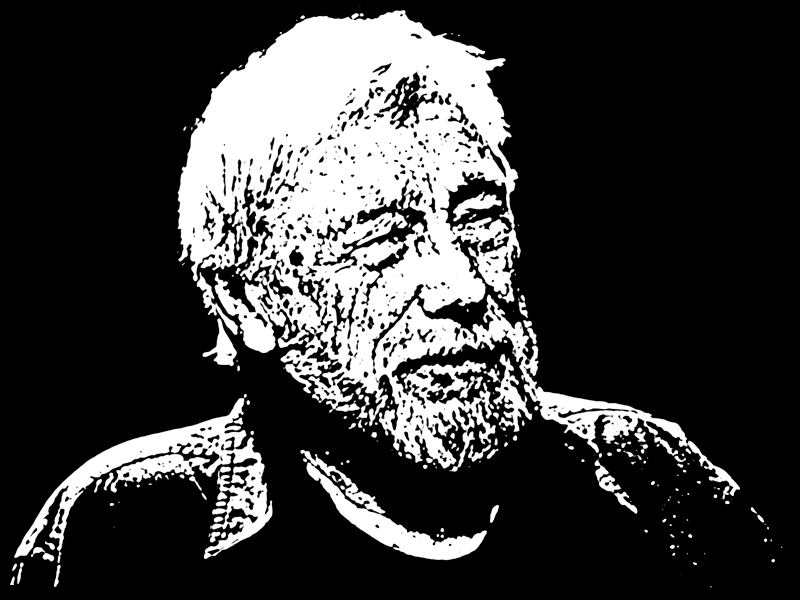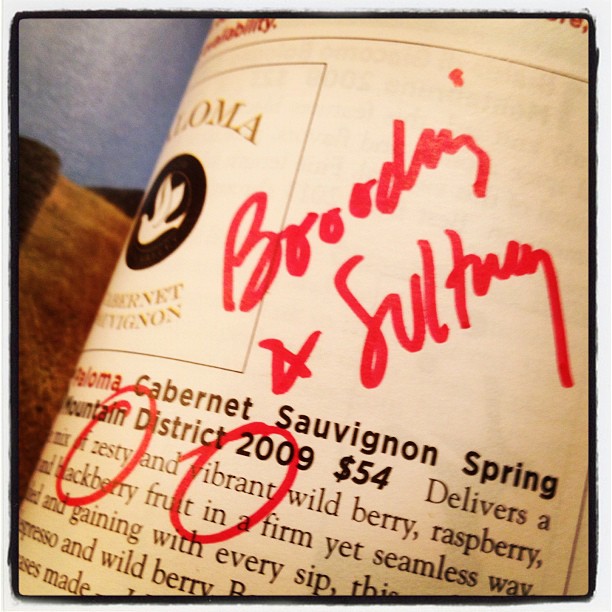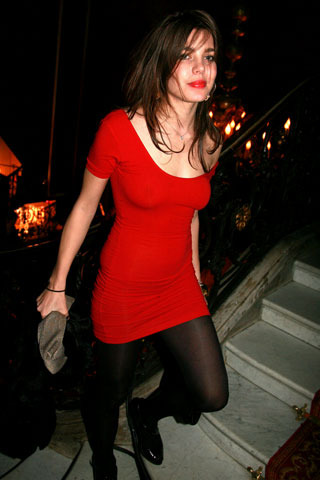Answers from the Woods

A Dent in a Bucket
Hammering a dent out of a bucket
a woodpecker
answers from the woods
~ Gary Snyder, “A Dent in a Bucket” from Danger on Peaks, 2004

Hammering a dent out of a bucket
a woodpecker
answers from the woods
~ Gary Snyder, “A Dent in a Bucket” from Danger on Peaks, 2004

Mark Strand (Credit: The New Yorker)
I usually have no idea what I will say before I begin to write. This is especially true with poems, and only slightly less so with lectures or essays. I write to find out what I have to say—not what I have to say about a given subject, but simply what I have to say. ~ Mark Strand, Poetry in the World
Mark Strand died on Saturday. There are many tributes to recommend including the following:
That opening passage above says much for me, though I’m often overly confident about what I think I want to say before I start. I’m almost always mistaken. Overconfident. It takes me some struggling to admit it. Several revisions. Sometimes years. Often humbled, but still stubborn. At best I write through the hubris, break into uncertainty, risk, discovery, perhaps find what I have to say by revising, redacting, rewriting,…
And yet the lesson takes relearning. Again and again.
Strand’s entire lecture/essay is worth reading. It’s a clever “inside out” way of wrestling with the challenge he’s been asked to tackle. It’s also a brave and honest reflection on the what and why of poems. A search for what the poet has to say. A search that never quite ends, never quite reaches its quarry.
It is a selfperpetuating search like chasing a mirage that deepens the poet’s (and the reader’s) appetite for, and receptivity to, wonder. It offers the possibility of feeling more alive.
When I read poetry, I want to feel myself suddenly larger … in touch with—or at least close to—what I deem magical, astonishing. I want to experience a kind of wonderment. And when you report back to your own daily world after experiencing the strangeness of a world sort of recombined and reordered in the depths of a poet’s soul, the world looks fresher somehow. Your daily world has been taken out of context. It has the voice of the poet written all over it, for one thing, but it also seems suddenly more alive… ~ Mark Strand, The Art of Poetry No. 77, 1998 (The Paris Review)
Thank you, Mark Strand, for searching for what you had to say. You have deepened our wonder and encouraged us to search for our own Holy Grails.
Dare to start your day with a lullaby? Good luck!
Victor Kossakovsky’s poignant three minute documentary about homelessness strips away all but the most most critical narrative elements: several simple shots of vagrants sleeping in a bank’s ATM foyer, three brief scenarios with ATM clients, ambient urban street noise, and an evocative “lullaby” which simultaneously soothes and mocks. The result is subtle, disturbing and captivating. I’ve already watched Lullaby twice this morning. I’ll watch it again.
The film poem’s location (Berlin) and music (sung by Nadezhda Utkina, an ethnic Udmurt) are foreign, but the theme is universal. Unlike the preachy, precious and shock mongering poverty diatribes with which we’re familiar, Kossakovsky’s Lullaby offers a more complex snapshot of the problem.
I biked around my neighborhood and started filming. In one of my favorite moments, a woman opened a door leading to the A.T.M.’s and, when she realized that there were people sleeping inside, slowly closed the door and tiptoed away, saying, “Sleep well!” ~ Victor Kossakovsky (NYTimes.com)
Seen through the eye of the camera we don’t initially know why the woman stalls. I imagined her deliberating, calculating the risks of entering. Is she in danger? Will she be mugged? And then she turns slowly, quietly and leaves without using the ATM out of deference to the sleeping homeless people.
Victor Kossakovsky’s nuanced approach, enhanced by coupling a gritty urban scenario with a tender and innocent lullaby, leaves the viewer with more questions than answers. No tidy takeaway here. The mark of a gifted storyteller.
Returning to the NYTimes.com post I was surprised to discover no comments about Lullaby. I’ve primed the pump with the hope that it will prompt deserved praise for Victor Kossakovsky and perhaps prompt some debate among viewers less smitten. My comments won’t appear until moderated, so here’s what I wrote:
Subtle, poignant and haunting. I’ve watched the video twice driven by the same instinct that often compels me to read a poem twice, to perpetuate the experience and to swim deeper into its message. Victor Kossakovsky’s “Lullaby” offers a fresh (and overdue) look at the complexity of homelessness without preaching or reducing his message to a precious Helvetica slogan. Bravo!
Perhaps you’d like to share your reaction with Kossakovsky too? Let’s jumpstart the discourse!


Brooding & Sultry: An apparition summoned from the glossy pages of Wine Spectator early in the morning…
Saturday morning found me soaking up the early December sunrise and flipping through the Wine Spectator‘s Top 100 Wines of 2011. Perhaps the only oenological pleasure surpassing sipping (and swallowing) fermented grape juice is reading (and imitating) wine reviews.
I’ve scribbled a few “caricature” wine reviews over the years and toyed with collecting them into a collection of vignettes and doodles. Not to worry, I won’t submit you to my bizarre brand of wine esoterica, not yet. But you might enjoy this curmudgeonly if slightly pompous fart that wafted out of the magazine pages briefly before vanishing into thin air (much to the surprise of my dog, Griffin, who sighed and rolled over to reflect on breakfast past and a sunny walk to come.)
Did the audio clipped (above) play for you? If not, I’m sorry. Audio clips can be memory gluttons, so — depending on your internet connection — it may be a bit grumpy. Or slooowww. If listening requires too much patience, abandon the mission. It’s a mere trifle. A goofy trifle. A half-baked (at best) audio sketch.
A better idea altogether would be to tuck in next to a roaring fire after opening a brooding but sultry bottle of claret to quaff with fresh baguette, pheasant pâté and runny Époisses. Aaahhh…
Do you ever stop to wonder
why erogenous and erroneous
are so close together
and yet so far apart?
Do you ever stop to wonder
why the green ink
spilling from my fountain pen
in paisleys and undulating hills
doesn’t seep through the paper
like water following
hidden seams in the earth,
seeping into streams and rivers
then emptying into the ocean?
Do you ever stop to wonder
if all roots grow down
into the dark, moist soil
or if a few are curious,
are rebellious and brave enough
to grow up to toward the sun?
Or why riffling through a magazine
in bed late at night
can cause the wind to blow
and the rain to fall
and the hoot-hoot of an owl
to echo in the woods
beyond your bedroom?
Or why you don’t lift off –
in a balloon perhaps –
and wait for the earth to turn
and then settle down again
in Tangier or Mumbai or Tokyo
without ever boarding an airplane
or waiting in a TSA security queue?
Or why you hurtle
across oceans and mountains
to plunge into the exotic
while neglecting terra incognita
in your own back yard?
Do you ever stop to wonder?


Why do I love Twitter? Let me count the ways… Okay, there are some Twitter cons (ie: a tempting time suck!) but the Twitter pros so totally outweigh them. There’s a fascinating sort of rhizomic community building that is unique from Facebook, Google Buzz, etc. But there’s something more compelling and yet more ellusive: the “twitter stream”. Sure, this reference gets bandied about in a variety of ways, and maybe some of the water metaphor’s sex appeal has been diluted along the way, but nobody seems to have coined a more apt alternative.
In just such an aqua-twitter mood the other day, I retweeted this: “just to drift… to be like a river…it is so important!” (RT @t2van via @conscire) Familiar allusions. Not earth shattering. Just a feeling, a yearning sent out into the either that resonated with others, that for a few brief seconds connected strangers. A common dream, a shared aspiration.
Shortly thereafter I received this response from Laura Munson(@Lauramunson):
“Read the Jim Harrison poem, Cabin Poem. Much to say about rivers in just a few perfect words.” ~ Laura Munson
It was Friday afternoon and I was headed off to opening night of Mrs. Farnsworth in Saranac Lake. I was running lines in my mind, driving through the Adirondack’s High Peaks. I wasn’t tweeting. Not much anyway! And I didn’t have time to look for Jim’s Harrison’s “Cabin Poem”. This morning I did. With two performances complete, and a tsunami of family and houseguests moving back out to sea, I’ve had time to sit down at my desk and begin catching up. And in the midst of catching up, I rememberd Laura’s recommendation, so I Googled Jim Harrison’s, “Cabin Poem” and read the brief but reflective poetry. Then reread it. Again and again. Then pushed my seat back from my cluttered desk and walked across my study to an arm chair, warm in the morning sun, and settled in to ponder while listening to the waves crashing against our dock house beyond the open window…
I’ve decided to make up my mind
about nothing, to assume the water mask,
to finish my life disguised as a creek,
an eddy, joining at night the full,
sweet flow, to absorb the sky,
to swallow the heat and cold, the moon
and the stars, to swallow myself
in ceaseless flow.
~ Jim Harrison, Cabin Poem
The strong Buddhist undertone aside, don’t you hear the Twitter overtone? I’ve certainly allowed myself to be swallowed in Twitter’s “ceaseless flow” more times than I care to keep track of. Which takes us back to where I started, to the pros and cons of this curious phenomenon called Twitter. It can be a tempting time suck. Yes. And sometimes that’s what we want and/or need, even when we resist admitting it. Swimming in a massive conversation about ideas that interest us, that connect us with others who are interested, interesting, challenging, educating, inspiring. Submitting to the “sweet flow”…
If you’re new to Twitter (or puffing out your chest for resisting that pointless waste of time) then you might not have had the opportunity to evaluate the rewards, the sheer joy of the sort of tweetalogue I’ve just recounted. Clearly Laura Munson, who I’ve never met, feels otherwise. And I’m grateful and richer for it! Thanks for guiding me to this insightful poem.

via blindflaneur.com
“I was a penniless poet living in a dilapidated water mill on the Little Miami River. She was Princess Caroline of Monaco. I had more hair then, none of it gray. She was a notorious wild child on the international celebrity scene. I took a chance on a 22-cent aerogramme. She never replied…” (Blind Flaneur)